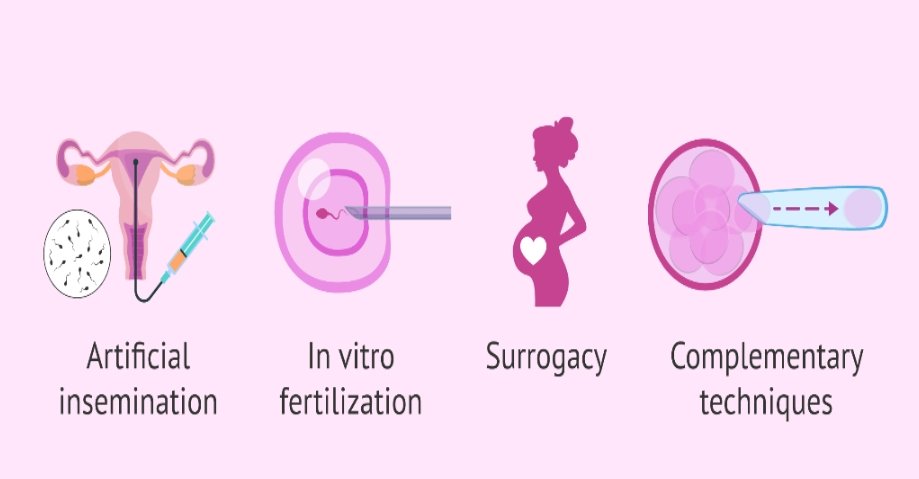Fertility is influenced by more than just age and genetics, it’s tied to your daily habits. Everything from what you eat to how much you sleep can affect hormonal balance, ovulation, and sperm quality. While medical treatments can help, changing your lifestyle can significantly improve your chances of conception. Understanding these connections allows couples to make small, consistent changes that have a meaningful impact on reproductive health.
The Impact Of A Balanced Diet On Reproductive Health
A nutrient-rich diet is the basic foundation for hormonal regulation and reproductive function. For women, foods rich in folate, omega-3 fatty acids, and iron support ovulation and egg quality. For men, zinc, selenium, and antioxidants can improve sperm health.
- Many fruits and vegetables
- Whole grains and legumes
- Healthy fats like olive oil and nuts
- Avoid processed foods and excessive caffeine.
Exercise
Physical activity can boost fertility by regulating insulin levels, improving mood, and maintaining a healthy weight. However, excessive exercise, especially high-intensity training in women, can disrupt ovulation. The key is moderation.
- Aim for 30 minutes of moderate activity five days a week
- Choose low-impact options like walking, swimming, or yoga
- For men, regular exercise can improve sperm count and motility, but overtraining and steroid use can harm testosterone levels.
Weight Management And Hormonal Regulation
Body weight, both under and overweight, plays a critical role in reproductive health. Excess fat can lead to insulin resistance and hormonal imbalances like elevated estrogen, which affects ovulation. On the other hand, being underweight may halt menstruation altogether. Maintaining a BMI in the healthy range (18.5–24.9) is ideal.
- A 5–10% weight loss can restore ovulation in women with PCOS
- For men, healthy weight supports testosterone production and sperm quality
Sleep Quality And Its Role In Fertility
Sleep is regulatory. Inconsistent or poor-quality sleep can disrupt the delicate hormonal interplay that governs fertility. Melatonin and cortisol levels, for instance, influence ovulation and sperm production. Aim for 7–9 hours of uninterrupted sleep each night. Establish a consistent bedtime, limit screen use before bed, and create a calm, dark sleep environment.
Reducing Stress For Better Reproductive Outcomes
Stress doesn’t just affect your mood, it can delay ovulation and reduce sperm quality. Chronic stress triggers cortisol release, which in turn suppresses reproductive hormones. While it’s not possible to eliminate stress entirely, managing it effectively is crucial. Consider:
- Mindfulness meditation or breathing exercises
- Journaling or creative hobbies
- Support groups or therapy
Limiting Alcohol And Tobacco Use
Substances like alcohol and tobacco are known to impair fertility in both men and women. Smoking affects egg quality and uterine lining receptivity in women, while reducing sperm count and DNA integrity in men. Alcohol, especially in excess, can lead to hormonal imbalances and increase miscarriage risk. Limiting or eliminating these substances is one of the most straightforward changes couples can make.
Environmental Toxins And Fertility Disruptors
Daily exposure to chemicals found in plastics, cosmetics, and even household cleaners can interfere with hormonal function. Endocrine disruptors like BPA, phthalates, and parabens have been linked to lower fertility rates. Steps to reduce exposure include:
- Avoiding plastic containers for food storage
- Choosing fragrance-free or natural personal care products
- Using eco-friendly cleaning agents
Timing And Frequency
Understanding the timing of ovulation can help couples maximize their chances of conception. Women typically ovulate around day 14 of a 28-day cycle, but this can vary. Tools like ovulation predictor kits and basal body temperature charts can be helpful. Couples should aim for the “fertile window,” usually the five days leading up to ovulation and the day of ovulation itself.
Supplements That Support Fertility In Men And Women
Certain vitamins and minerals can fill nutritional gaps and support reproductive function. Commonly recommended supplements include:
- Folate and inositol for women, especially those with PCOS
- Coenzyme Q10 and vitamin E for egg and sperm health
- Zinc, selenium, and L-carnitine for men
Consulting a healthcare provider before starting any supplement regimen ensures safe dosages and avoids unnecessary overlaps.
When To Seek Help From Fertility Specialists
If natural approaches haven’t worked after 6–12 months of trying (depending on age), it may be time to consult a specialist. Fertility testing for both partners can uncover issues that may not be evident. Personalized treatment plans, ranging from lifestyle coaching to advanced reproductive technologies, offer a broader path forward. If you’re exploring options, the best hospital for infertility treatment will combine advanced technology with compassionate, patient-centered care.

